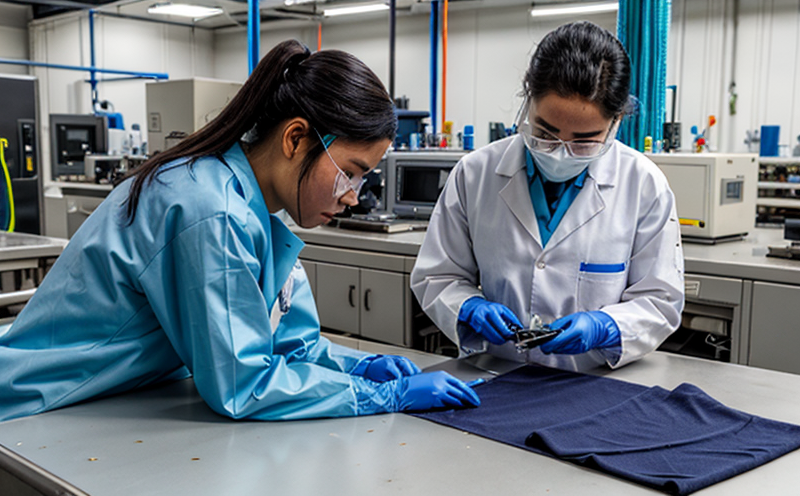Testing for residual solvents in textiles used in technical applications
The Importance of Testing for Residual Solvents in Textiles Used in Technical Applications
In todays fast-paced industrial landscape, textiles play a vital role in various technical applications such as filtration, insulation, and protective wear. However, the manufacturing process often involves the use of solvents to treat these materials, leaving behind residual contaminants that can compromise their performance, safety, and compliance with regulations. This is where Testing for Residual Solvents in Textiles used in Technical Applications comes into play a laboratory service offered by Eurolab that ensures your textiles meet the highest standards.
As a manufacturer or supplier of technical textiles, you understand the importance of quality control and assurance. Your products are subject to rigorous testing and certification to meet industry-specific requirements and customer expectations. One critical aspect of this process is detecting residual solvents in your textiles. These contaminants can lead to product failures, reduced performance, and even pose health risks to end-users.
In this article, well delve into the world of Testing for Residual Solvents in Textiles used in Technical Applications, exploring its benefits, advantages, and importance for businesses like yours. Well also answer frequently asked questions (FAQs) to help you better understand the process and why its essential for your products.
The Advantages of Using Testing for Residual Solvents in Textiles Used in Technical Applications
Eurolabs Testing for Residual Solvents in Textiles used in Technical Applications offers numerous benefits, including
Enhanced Product Quality By detecting residual solvents, you can ensure that your textiles meet the required standards, resulting in improved product performance and lifespan.
Compliance with Regulations Many industries have strict regulations regarding solvent levels in textiles. Our testing service helps you comply with these regulations, reducing the risk of penalties or recalls.
Improved Safety Residual solvents can pose health risks to end-users. By detecting them, you can ensure that your products are safe for use and meet industry-specific safety standards.
Increased Customer Satisfaction When your products meet the required standards, customers are more likely to be satisfied with their performance and longevity.
Reduced Costs Identifying and removing residual solvents during the manufacturing process can save you money in the long run by reducing product failures and associated costs.
Key Benefits of Eurolabs Testing Service
Our testing service offers a range of benefits, including
Accurate Results Our state-of-the-art equipment and experienced analysts provide accurate results that help you make informed decisions about your products.
Fast Turnaround Time We understand the importance of timely results. Our team works efficiently to ensure that you receive your test reports quickly.
Expert Analysis Our analysts are experts in their field, providing comprehensive analysis and interpretation of results.
Regulatory Compliance We stay up-to-date with industry regulations and standards, ensuring that our testing service meets all requirements.
Frequently Asked Questions (FAQs)
Q What is the significance of Testing for Residual Solvents in Textiles used in Technical Applications?
A Residual solvents can compromise product performance, safety, and compliance with regulations. Our testing service ensures that your textiles meet the required standards.
Q How do you detect residual solvents in textiles?
A We use advanced analytical techniques, including chromatography and spectroscopy, to detect and quantify residual solvents.
Q What are the common types of solvents found in textiles?
A Common solvents include volatile organic compounds (VOCs), such as benzene, toluene, and xylene (BTX).
Q How often should I test for residual solvents in my textiles?
A We recommend regular testing, especially during product development, manufacturing, and quality control phases.
Q Can you provide certification or documentation for our products?
A Yes, we can provide certification and documentation that meets industry-specific requirements and customer expectations.
Conclusion
In conclusion, Eurolabs Testing for Residual Solvents in Textiles used in Technical Applications is an essential service that ensures your products meet the highest standards of quality, safety, and compliance. By detecting residual solvents, you can reduce product failures, improve customer satisfaction, and increase profitability.
Dont compromise on product quality and safety trust Eurolabs expert analysts to deliver accurate results and comprehensive analysis. Contact us today to learn more about our testing service and how it can benefit your business.




